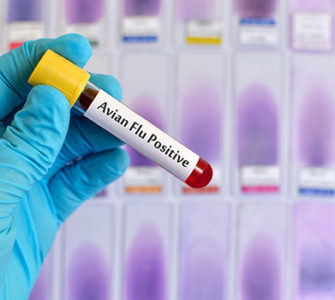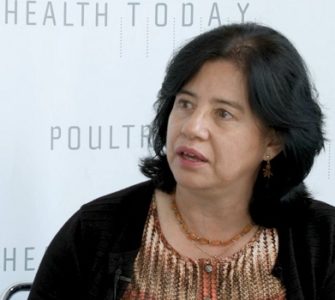Global measures to tackling avian influenza
Efficient biosecurity systems are essential to protecting poultry from the risk of avian influenza (AI).
However, some countries are better at enforcing biosecurity than others, reports Poultry Digital.
Following is an overview of efforts six major poultry players are making to protect themselves from an AI pandemic:
UK
The UK government has strict, best-practice guidelines to keep poultry units disease-free.
Producers are advised to restrict the movement of people, vehicles and equipment on farms to minimize contamination, while clothing, footwear and equipment should be disinfected before and after contact.
Water and food should be kept away from wild birds, while isolating new birds, preparing a plan for bringing the flock indoors, and thoroughly cleaning housing at the end of a cycle are all encouraged.
Brazil
Brazil has ramped up biosecurity measures, giving producers one year to comply with new prevention rules — which they must fund themselves — including installing screens to isolate poultry from wild birds.
Other measures include installing disinfection arches to decontaminate vehicles, and providing chlorinated water to animals.
USA
The USDA’s Animal and Plant Health Inspection Service offers tips for poultry farmers to stay disease-free, including warnings not to borrow tools and machinery since they may be contaminated.
On top of normal biosecurity measures, it advises not to allow visitors near livestock unless absolutely necessary. New animals must also be separated from the rest of the flock for 30 days.
South Africa
The South African government has had a contingency plan in place since the 2000s to protect its 140m chickens in the event of an avian flu outbreak.
Amongst its biosecurity measures, it advises farmers to operate with a stocking density of 15-20 birds per square meter to avoid overcrowding.
Chickens should be monitored at all times, farmers should have an action plan in case of disease, and poultry houses should be designed to keep out rodents and wild birds.
China
China has invested heavily in poultry farm surveillance following more than 1,200 human cases of H7N9 being reported since 2013.
Measures include cleaning infected farms and live bird markets, and suspensions of live poultry trade where outbreaks occur.
China’s Ministry of Agriculture continues to call for improved biosecurity at markets, and a ban on birds remaining overnight to avoid accumulation of the virus.
India
The Indian government is urging poultry keepers to secure perimeters and restrict unnecessary visitors. It also encourages keepers to ensure there are no trees, foliage or other potential roosting sites for wild birds around sheds.
Producers are advised to remove dead birds on a daily basis, while dying birds should be sent to a state laboratory for diagnosis.
Posted on July 20, 2018

















